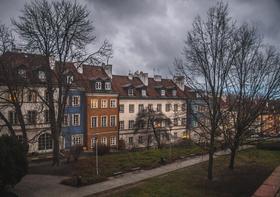Top Rankings
North Polk Comm School District ranks among the top 20% of public school district in Iowa for:
Category
Attribute
Overall Rank
Highest overall rank (Top 5%)
Math Proficiency
Highest math proficiency (Top 5%)
Reading/Language Arts Proficiency
Highest reading/language arts proficiency (Top 5%)
Science Proficiency
Highest science proficiency (Top 5%)
Community Size
Largest student body (number of students) (Top 1%)
For the 2025-26 school year, there are 4 public elementary schools serving 1,625 students in North Polk Comm School District. This district's average elementary testing ranking is 10/10, which is in the top 5% of public elementary schools in Iowa.
║┌┴¤═°╣┘═° Elementary Schools in North Polk Comm School District have an average math proficiency score of 86% (versus the Iowa public elementary school average of 70%), and reading proficiency score of 86% (versus the 69% statewide average).
Minority enrollment is 7% of the student body (majority Hispanic), which is less than the Iowa public elementary school average of 29% (majority Hispanic).
Overview
This School District
This State (IA)
# Schools
5 Schools
924 Schools
# Students
2,272 Students
320,020 Students
# Teachers
144 Teachers
23,100 Teachers
Student-Teacher Ratio
16:1
16:1
Student By Grade
District Rank
North Polk Comm School District, which is ranked within the top 5% of all 325 school districts in Iowa (based off of combined math and reading proficiency testing data) for the 2022-2023 school year.
The school district's graduation rate of 95% has stayed relatively flat over five school years.
Overall District Rank
#9 out of 327 school districts
(Top 5%)
(Top 5%)
Math Test Scores (% Proficient)
86%
68%
Reading/Language Arts Test Scores (% Proficient)
87%
70%
Science Test Scores (% Proficient)
82%
63%
Graduation Rate
(21-22)≥95%
90%
Students by Ethnicity:
Diversity Score
0.14
0.47
% American Indian
n/a
n/a
% Asian
n/a
3%
% Hispanic
3%
13%
% Black
1%
7%
% White
93%
71%
% Hawaiian
n/a
1%
% Two or more races
3%
5%
All Ethnic Groups
District Revenue and Spending
The revenue/student of $11,889 in this school district is less than the state median of $16,468. The school district revenue/student has declined by 13% over four school years.
The school district's spending/student of $13,713 is less than the state median of $16,042. The school district spending/student has declined by 13% over four school years.
Total Revenue
$27 MM
$8,262 MM
Spending
$31 MM
$8,048 MM
Revenue / Student
$11,889
$16,468
Spending / Student
$13,713
$16,042
Best North Polk Comm School District ║┌┴¤═°╣┘═° Elementary Schools (2025-26)
School
(Math and Reading Proficiency)
(Math and Reading Proficiency)
Location
Quick Facts
Rank: #11.
North Polk Middle School
(Math: 86% | Reading: 89%)
Rank:
Rank:
10/
Top 5%10
315 Ne 141st Ave.
Alleman, IA 50007
(515) 984-3400
Alleman, IA 50007
(515) 984-3400
Gr: 6-8 | 493 students Student-teacher ratio: 18:1 Minority enrollment: 6%
Rank: #22.
North Polk West Elementary School
(Math: 85-89% | Reading: 80-84% )
Rank:
Rank:
10/
Top 10%10
1400 W Broadway
Polk City, IA 50226
(515) 984-3400
Polk City, IA 50226
(515) 984-3400
Gr: PK-2 | 416 students Student-teacher ratio: 14:1 Minority enrollment: 7%
Rank: #33.
North Polk Central Elementary School
(Math: 80-84% | Reading: 83%)
Rank:
Rank:
9/
Top 20%10
311 Ne 141st Ave
Alleman, IA 50007
(515) 984-3400
Alleman, IA 50007
(515) 984-3400
Gr: PK-5 | 379 students Student-teacher ratio: 14:1 Minority enrollment: 9%
Rank: n/an/a
340 E Vista Lake Drive
Polk City, IA 50226
(515) 984-3400
Polk City, IA 50226
(515) 984-3400
Gr: 3-5 | 337 students Student-teacher ratio: 15:1 Minority enrollment: 8%
Recent Articles

School Choice vs. Neighborhood Schools: Key Factors
Explore school choice vs. neighborhood schools in 2025. Learn key factors parents should weigh when deciding the best fit for their child.

Best School Match 2025: ║┌┴¤═°╣┘═° vs Charter vs Magnet
Compare 2025 public, charter, and magnet school options with updated data, trends, and strategies to find the best fit.

║┌┴¤═°╣┘═° School Boundaries and Equity in 2025
Explore how public school boundaries shape access, equity, and opportunity for students in 2025. Learn the impact on families and education policy.





